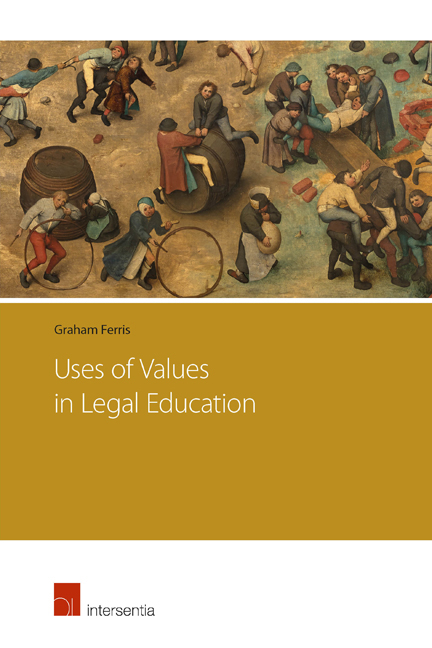Summary
This book moves from the general to the specific and from the theoretical to the illustrative. Hopefully, it also manages to keep the general and theoretical grounded in practical concerns with illuminating examples; and to keep the illustrative more than merely anecdotal but truly illustrative of more general concerns. Th us, it is both theoretical and anecdotal throughout. Nevertheless, the centre of gravity shift s as the book progresses.
Part I is the most general or theoretical of the three parts that make up the book. It attempts to frame the evaluative task and set up aspirational values for practice in legal education. Within Part I itself there is a narrowing of focus. Chapter 1 is concerned witheducational values; chapter 2 with ubiquitous contemporary arguments as applied to legal education; and chapter 3 with the values that might hope to be generally agreed upon as fitting for legal educational practice.
Chapter 1 addresses the values of those who educate. It is addressed to academics generally as well as legal academics specifically. It is addressed to institutions and support staff as well as to academics. The modern university is a collective enterprise, and the duties on educators must fall across institutions; we must try to avoid the moral blindness of compartmentalisation of role in the workplace. One central value is critical openness: a value-informed higher education must operate within a pluralist frame of reference. The specific values argued for include a respect for truth and clarity in expression, but also awareness of the importance of university for students as a place where they form their personal identities. Emphasis is given to trying to identify and serve the needs of the students as people, despite the din from voices asserting a legitimate, if not determining, interest in higher education in general and legal education in particular.
Chapter 2 is short and limited in scope. It tries to explain why the language of ethical duty, or fiduciary care, is appropriate in adult education. Modern public discourse is dominated by the claims of the market to resolve most if not all public concerns.
- Type
- Chapter
- Information
- Uses of Values in Legal Education , pp. xi - xivPublisher: IntersentiaPrint publication year: 2015



